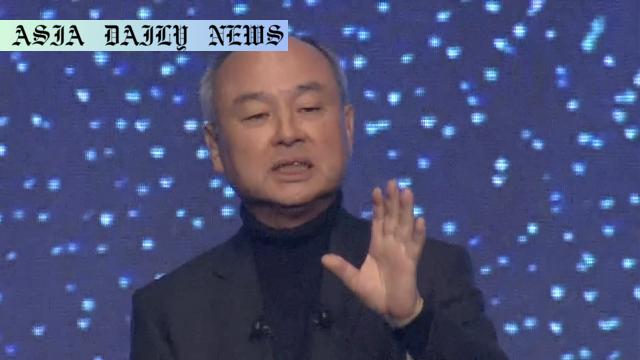AI agents: SoftBank aims to create self-proliferating AI agents that can program and operate independently, revolutionizing the tech industry.
SoftBank aims to create self-proliferating AI agents to replace human programming.
CEO Son Masayoshi envisions AI developing new and efficient AI models autonomously.
SoftBank’s target is to build one billion AI types for completing administrative tasks.
This innovation signifies a new era in automation and AI proliferation.

Introduction: The New Era of AI Proliferation
SoftBank Group, a cornerstone in technological innovation, is poised to revolutionize the role of artificial intelligence (AI) with an ambitious vision. The company plans to create AI agents that can autonomously develop more advanced counterparts without human intervention. SoftBank’s Chairman and CEO Masayoshi Son firmly believes that traditional human programming for AI is becoming obsolete, heralding a self-evolving AI landscape. This bold initiative shows the company’s commitment to shaping the future of technology.
AI Agents as Self-Proliferating Entities
A cornerstone of SoftBank’s strategy is the development of AI agents that can independently replicate and optimize their efficiency. This concept of self-proliferating AI stands as a game-changer in automation and autonomy. Once developed, these AI agents will have the ability to perform intricate tasks such as organizing schedules, facilitating business negotiations, and preparing documents for meetings—all without requiring human input. This development positions SoftBank as a pioneer in transitioning humanity into an era dominated by autonomous technology. CEO Son has set an ambitious target to establish one billion AI agents by the end of 2023, underlining the scale and urgency of this project.
Global Implications and Industry Progress
SoftBank’s technological frontier has implications that stretch beyond Japan. The ripple effect of this achievement could redefine industries worldwide, automating tasks and reducing the need for human oversight. Moreover, other Japanese tech innovators like Fujitsu and NEC are also exploring AI agent systems, further emphasizing the collaborative and competitive nature of this technological evolution. As these developments mature, they promise to shift global tech infrastructure toward fully autonomous operational capacities. However, the ethical considerations, such as managing AI’s decision-making boundaries, add layers of complexity to this promising innovation.
Closing Thoughts
The announcement by SoftBank marks a historic shift toward a more interconnected, autonomous, and technological future. Beyond just innovation, it raises critical questions about accountability, ethics, and the balance of technology with societal needs. With the goal of building, deploying, and scaling one billion AI agents, SoftBank’s bold strategy sets a benchmark for the rest of the tech industry. The future will vividly witness whether humanity is ready to embrace a seamlessly automated world, a vision championed by SoftBank and other innovators.
Commentary
SoftBank’s Bold Leap into AI Proliferation
SoftBank’s ambitious goal of developing one billion AI agents by the end of 2023 is a testament to the transformative power of technology. This isn’t just a technological challenge, but an ideological shift that recognizes the decreasing necessity of human programming in AI systems. By delegating the creation and optimization of AI models to autonomous agents, SoftBank could redefine operational efficiency across industries. This transition is a reminder of how fast technology is accelerating and raising essential questions about its integration into society.
Potential Transformations Across Industries
Considering the implications of SoftBank’s goals, it’s clear that their innovation will influence nearly every sector imaginable. From administrative tasks to strategic business initiatives, the automation potential of AI agents could shift job landscapes and redefine productivity benchmarks. However, as promising as this future appears, it brings ethical issues to the forefront. How do we ensure these self-programming AI systems align with human values? What safeguards are necessary to eliminate the risks of a fully automated workforce?
Ethical Concerns and Future Implications
While SoftBank’s AI agent project impresses with its scale, it also highlights a key challenge: accountability. If AI agents can self-replicate and innovate without overseeing humans, the question becomes who bears responsibility for their actions. Such dilemmas are not entirely new but are becoming increasingly urgent as companies push the boundaries of AI capabilities. Policymakers will need to establish robust frameworks to ensure innovation aligns with societal expectations and safety standards.
Conclusion: A Mixed Horizon for AI Proliferation
SoftBank’s initiative stands at the crossroads of possibility and caution. On one side, the sheer ambition of one billion self-developing AI agents signifies an unprecedented technological leap. On the other side, it calls for deeper discussions about the role of humans in maintaining ethical decision-making in a world increasingly guided by artificial intelligence. As we approach this new era, it is vital to weigh both optimism for growth and the responsibility to balance innovation with humanity.


